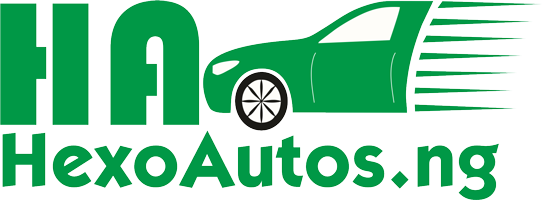Buying a car in Nigeria can feel overwhelming, especially with so many options and risks involved. This car buying guide for Nigerians provides clear steps to help you make the right choice easily. From setting a budget to checking vehicle history and avoiding common pitfalls, you will gain the knowledge and confidence to secure a car that suits your needs and lifestyle.
1. Define Your Needs and Budget
Before exploring the market, determine the purpose of the car. Are you buying it for personal use, business, or ride-hailing services? Your needs will influence the type of car you choose.
Factors to consider:
- Fuel efficiency
- Maintenance costs
- Availability of spare parts
- Road conditions and terrain
- Seating capacity
Establishing a budget will help you narrow down your choices. Consider not only the purchase price but also additional expenses such as registration, insurance, and maintenance.
2. Decide Between New and Used Cars
New cars offer reliability, manufacturer warranties, and the latest features, but they are more expensive. On the other hand, used cars are more affordable, but they require careful inspection to avoid buying a faulty vehicle.
Pros and Cons:
New Cars
- ✅ Manufacturer warranty
- ✅ Lower maintenance costs
- ✅ Latest technology and safety features
- ❌ Higher purchase price
- ❌ Rapid depreciation
Used Cars
- ✅ More affordable
- ✅ Slower depreciation
- ✅ Greater variety of options within your budget
- ❌ Higher risk of mechanical issues
- ❌ No manufacturer warranty (unless certified pre-owned)
Read Also:
- Car Consignment in Abuja: Sell Your Car Fast and Hassle-Free
- 2025 Toyota Camry: Stunning Features & Pricing in Nigeria
3. Research Available Car Options
With your budget and needs in mind, research different car brands and models available in Nigeria. Consider reliability, fuel efficiency, and ease of maintenance. Popular brands in Nigeria include Toyota, Honda, Lexus, Mercedes-Benz, Hyundai, and Nissan.
Check online auto marketplaces like Hexoautos.ng, car dealerships, and social media platforms for price comparisons and user reviews.
4. Inspect the Car and Verify Documents
If buying a used car, physical inspection is crucial. Always inspect the vehicle during daylight hours and preferably with a trusted mechanic.
Checklist for Used Car Inspection:
- Engine performance and sound
- Mileage (lower mileage generally means less wear and tear)
- Suspension and brakes
- Interior and exterior condition
- Tires and undercarriage
Verify Legal Documents:
- Vehicle registration documents
- Customs duty clearance
- Roadworthiness certificate
- Proof of ownership
- Insurance documents
Ensure the Vehicle Identification Number (VIN) on the car matches the one on the documents.
5. Consider Financing Options
If you don’t have the full amount, explore financing options such as:
- Bank loans: Some Nigerian banks offer auto loans with reasonable interest rates.
- Car dealership financing: Some dealerships offer installment payment plans.
- Lease-to-own programs: This allows you to pay gradually while using the car.
Compare interest rates and repayment terms before making a commitment.
6. Negotiate the Price
Don’t accept the first price you get. Whether at a dealership or from a private seller, negotiation is key. Research market prices beforehand so you can bargain effectively.
7. Complete the Purchase and Register the Car
Once satisfied with the car and the price, ensure a smooth transaction:
- Sign a sales agreement with the seller.
- Make payments through a traceable channel (avoid cash transactions when possible).
- Complete ownership transfer and register the vehicle at the appropriate government agency (FRSC).
8. Get Insurance and Secure Your Car
Car insurance is mandatory in Nigeria. Options include:
- Third-party insurance (covers damages to other vehicles and people)
- Comprehensive insurance (covers your car, theft, and third-party damages)
Additionally, install security measures such as a GPS tracker and an alarm system to protect against theft.
9. Maintain Your Car Regularly
Regular maintenance ensures longevity and performance. Follow the manufacturer’s service schedule and use quality parts. Check oil levels, tire pressure, and brake performance frequently.
Final Thoughts
Following this car buying guide will help you make an informed decision and avoid common pitfalls. Take your time, do your research, and consult experts if necessary. Whether buying new or used, the goal is to get the best value for your money.
Looking for trusted car deals? Visit Hexoautos.ng to find quality cars at competitive prices in Nigeria!
